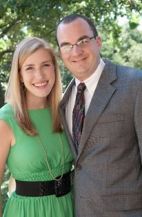Supreme Court to Hear Oral Argument in Missouri Playground Case by John Litzler

[adning id=”33097″]
When the Supreme Court of the United States (SCOTUS) sits for the April session of its term that began in October 2016, it may be doing so as a full court for the first time in over a year. SCOTUS has been an eight member court since Justice Antonin Scalia passed away last February. In January, President Donald Trump nominated Neil Gorsuch, a judge on the 10th Circuit Court of Appeals. The Senate Judiciary Committee will begin its confirmation hearing for Judge Gorsuch next Monday, March 20th. If confirmed, Judge Gorsuch could join the court before it begins hearing cases again on April 17th. This term will end in late June or early July when the Court recesses for the summer before its new term begins in October.
While this term contains several cases concerning the first amendment, SCOTUS will only hear one case this spring that directly addresses religious liberty. The case, Trinity Lutheran Church v. Pauley, involves a program in Missouri where the state reimburses non-profits for purchasing and installing rubber playground surfaces made from recycled tires. Trinity Lutheran Church was excluded from the state program because it is a religious organization. A confirmation of Judge Gorsuch would eliminate the potential for a tied 4-4 decision just in time for the Trinity Lutheran case. SCOTUS is scheduled to hear oral argument in the case on Wednesday, April 19th. The Court agreed to hear the Trinity Lutheran case in January 2016, about a month before Justice Scalia died. It was unusual that oral argument in the case was not heard in the fall of 2016. This has caused some speculation that the Court anticipates it will be deeply divided on the case and wanted to wait, if possible, to decide the case until the bench was full.
What the Trinity Lutheran case is about:
Missouri implemented a program to encourage and increase safety on playgrounds across the state. There is a fee on the sale of new tires under the program. This fee is used to reimburse non-profits that resurface their playgrounds using rubber from recycled tires by providing grants to the organizations. The program has the added benefit of reducing the number of old rubber tires in landfills across the state.
Trinity Lutheran Church operates its Child Learning Center as a ministry of the church. The learning center’s playground is currently comprised of pea gravel, the type of playing surface that can injure children. When Trinity Lutheran applied to participate in the reimbursement program, its application was ranked 5th by Missouri’s Department of Natural Resources. The State of Missouri awarded grants to the top fourteen applicants, but denied Trinity Lutheran’s application for one reason: Trinity Lutheran is a church. Under the Missouri Constitution, the state may not use money from its treasury to aid any church, sect, or denomination of religion.
The controversy stems from two clauses of the First Amendment. The Free Exercise Clause states that Congress shall make no law “prohibiting the free exercise” of religion. The government must remain neutral and treat religious citizens just as it does any other citizen. Trinity Lutheran argues that denial from Missouri’s program is not neutral, but discrimination against the organization based on religion and a violation of the Free Exercise Clause of the First Amendment.
The Establishment Clause of the First Amendment states that “Congress shall make no law respecting an establishment of religion…” The government can’t use public tax dollars to favor one religion over another. The government also can’t favor religion over irreligion. The State argues that funding a new playground surface for a church that teaches students a Christian worldview would violate the Establishment Clause and that not receiving state money does nothing to prevent the church from freely exercising its religious beliefs.
Trinity Lutheran argues that because the funds are only used for resurfacing the playground and not for a religious purpose, Missouri can grant the money without promoting any particular religion. Missouri argues that the act of making sure Trinity Lutheran complies with all the rules program requires it to regulate churches. This is the very type of regulation that churches don’t want the government doing. It also argues that allowing Trinity Lutheran to receive the grant would create competition among religious groups to receive state funding.
Why it matters:
The original intent of the Missouri law was to create safer playground surfaces for children. Missouri is going to pay for fourteen organizations to receive a softer rubber surface that won’t cut and scrape kids as badly when they fall while playing. But why does it matter which fourteen playgrounds are made of recycled tire rubber and why does the entire country care about children’s scraped knees in Missouri?
The effects of the Court’s ruling in this case will be long lasting and could be wide ranging. Trinity Lutheran Church and its allies warn that if SCOTUS rules in favor of Missouri then countless public services offered by religious organizations are in jeopardy. A religiously affiliated battered women’s shelter or food pantry could be denied funds despite all of the social services it offers. Meanwhile, Missouri is not the only state with a constitution that prohibits the use of state funds by religions groups. Missouri argues that a ruling in favor of the church would invalidate similar provisions in 39 of 50 state constitutions. Allowing churches to have access to taxpayer funding for any reason endangers freedom of religion and the separation of church and state.
If a full nine member SCOTUS decides the case it could be a historic ruling interpreting religious liberty under the First Amendment. If Justice Gorsuch is not confirmed prior to oral argument in the case, the result could be a 4-4 tie and would offer little guidance for future disputes. In the event of a tie, the lower court ruling is upheld. This case is being appealed by Trinity Lutheran Church from the 8th Circuit, which covers Missouri. Should SCOTUS render a 4-4 split decision, the 8th Circuit’s ruling in favor of Missouri would stand.
*The Testament is made available by Christian Unity Ministries for educational purposes only. Blogs posted here provide general information and a general understanding of the law, and do not provide specific legal advice. By using The Testament you understand that there is no attorney client relationship between you or you church and the Christian Unity Ministries. The Testament should not be used as a substitute for competent legal advice from a licensed professional attorney in your state.
John Litzler directs the Church Law division of Christian Unity Ministries in San Antonio. He is a graduate of the University of Texas and Baylor Law school. He is a member of the SSHS class of 2004.

[adning id=”33207″]
[adning id=”33207″]












